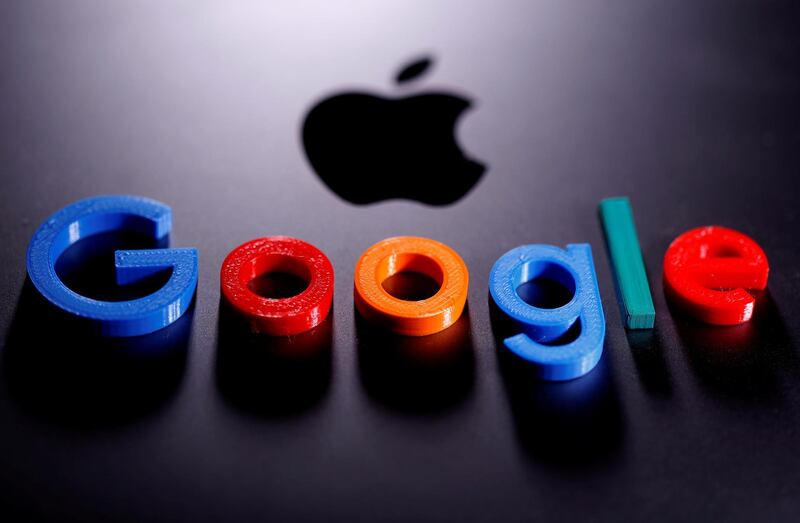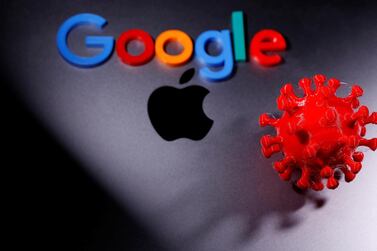Apple and Google released the first public version of the Exposure Notification interface that governments can use to build apps to detect the spread of Covid-19 infections.
"Our Exposure Notifications technology is available to public health agencies on both iOS and Android [operating systems] … it will enable apps created by public health agencies to work more accurately, reliably and effectively," Apple and Google said in a joint statement on Wednesday.
Last month, the tech giants released beta versions of the interface to help with the development process. Now, public health organisations can use it in forthcoming apps.
“What we have built is not an app - rather public health agencies will incorporate the API [application programming interface] into their own apps that people install,” the companies said.
An API is a set of tools that programmers use to develop a new software or technology.
Using the new API tools, the public health authorities will update or create apps which users may install if they choose to participate. Google and Apple will make available the public health authority apps for each region in the Play Store and App Store.
There are about three billion users between Apple's iOS and Google's Android platforms equivalent to about one third of the world's population.
Last month, in a rare partnership the two Silicon Valley tech giants announced a two-phase exposure notification solution that uses Bluetooth technology on mobile devices to aid in contact tracing.
Users who have downloaded the app for their region will be able to update their status if they test positive. The iOS and Android system will then anonymously notify other users who have come into contact with that person.
Users will decide whether or not to opt-in to exposure notifications, Apple and Google said.
“The system does not collect or use location from the device and if a person is diagnosed with Covid-19, it is up to them whether or not to report that in the public health app.”
Many US states and nearly 22 countries across five continents have already requested the API to support the development process of their contact-tracing apps.
Various governments have already tried to roll out their own phone apps to fight the spread of Covid-19 but met limited success due to technical issues on iOS and Android phones.
They are mostly relying on global positioning system technology to track people’s location, which Apple and Google are completely avoiding due to privacy concerns.
Still, many countries such as the UK, India, France and Norway have expressed concerns that users’ privacy could be breached and the centralised approach of the interface makes alerts vulnerable to be tweaked by the hackers.
Apple and Google said they have made changes to the technology after getting feedback from the US Centres for Disease Control and Prevention and other health authorities.
“User adoption is key to success and we believe that strong privacy protections are the best way to encourage use of these apps,” the companies said.
“Over the last several weeks, our two companies have worked together, reaching out to public health officials, scientists, privacy groups and government leaders all over the world to get their input and guidance,” Google and Apple added.
The companies said collected data will not be monetised in any form and all of it will be stored and processed on the user’s device. And, at any point of time, users can turn it off by uninstalling the contact tracing application or turning off exposure notification in settings.







